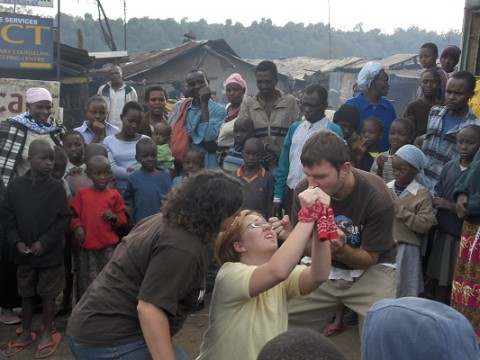

The dangers of dependency on a mission trip (part 3)
Third in a series on the issue of dependency focuses on why it can backfire on your group.
For the participants of the sending church, a sense of dependency can also be formed.
 Most commonly, I have seen these three phenomena:
Most commonly, I have seen these three phenomena:
1.
Comfort in ministry: Participants grow meaningful relationships with a host church, and remain in those relationships year after year, rather than branching out. Although the first few visits may be a stretching process, sequential visits become routine and comfortable.
2.
Stagnation in teamwork: New experiences most commonly stretch a team. It is within new places, challenges, and situations that conflict and resolution occur. Dependency upon the normality of a location limits this process.
3.
Lessened dependence upon God: For young people, growing and learning within experiences is linked to newness. For a participant to fully depend on God, their view of relationship, ministry, and the Holy Spirit must be stretched. New locations require this trust in ways that familiar locations do not.
Furthermore, as participants seek to fulfill the Great Commission, it is important that they see and experience the aspect of reaching out to new people in new places. Simply put, the Gospel is not spread into unreached places when it always returns to those who have already heard the message.

Would love to hear your thoughts on how sending a team of (almost) totally different participants to a repeat partner works to mitigate these issues(though it wouldn’t mitigate the ones in your previous post.)
As an STM mobilization agency that isn’t affiliated with a church, I’ve struggled to find the balance on this particular issue. The more “regular” a partner is, the better we’re able to prepare teams for some degree of actual impact by aligning pre-departure expectations during training (as you’ve mentioned in previous posts.) And the closer we come to a functional benefit to our partner, the closer we seem to come to life impact on our STM participants.